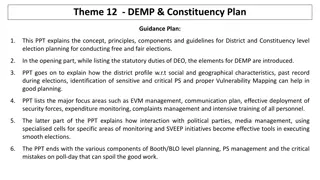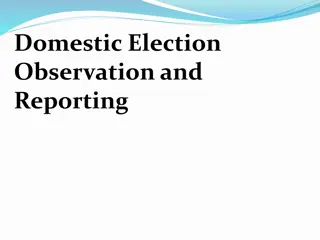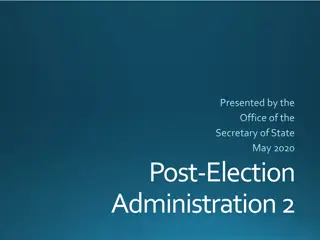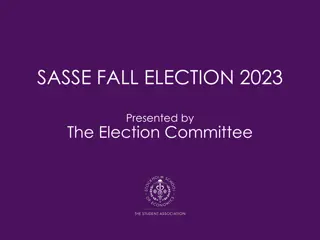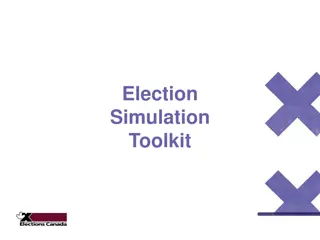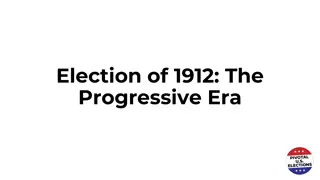Hungary's Recent Election: A Closer Look at Political Dynamics
Hungary's recent parliamentary election saw the ruling Fidesz party further consolidate power under Prime Minister Viktor Orban, despite concerns raised by international observers about unfair advantages and lack of fairness. The election results raise questions about the electoral process, media influence, and Hungary's geopolitical alignment. As Hungary maintains close ties with Russia and China, experts predict deeper relations with authoritarian regimes ahead. Considerations about imposing sanctions and ensuring free and fair elections spark debates among the international community.
Download Presentation

Please find below an Image/Link to download the presentation.
The content on the website is provided AS IS for your information and personal use only. It may not be sold, licensed, or shared on other websites without obtaining consent from the author. Download presentation by click this link. If you encounter any issues during the download, it is possible that the publisher has removed the file from their server.
E N D
Presentation Transcript
CQ Press Lecture Spark APRIL 5, 2022 Connecting current events to your International Relations classroom
Right-Wing Hungarian Party Further Consolidates Power Voters in Hungary recently participated in elections which saw the ruling right-wing Fidesz party further consolidate power. Led by Viktor Orban, the Fidesz party was able to overcome a unified effort by six opposition parties that had hoped to build a winning coalition and gain control of the government. Instead, the Fidesz party was able to secure 54% of the vote and thus will remain in firm control of the legislature by holding 135 seats in the 199-member parliament. The election results mean that Prime Minister Viktor Orban will continue to lead Hungary as he has done for the last dozen years. What happened in Hungary? 2
Right-Wing Hungarian Party Further Consolidates Power There are concerns among international observers that Hungary s parliamentary election was neither free nor fair. In an election which saw the ruling party win a fourth consecutive term - groups such as the Organization for Security and Co-operation in Europe (OSCE) are citing unfair advantages enjoyed by the Fidesz party when it comes to the electoral system, the media, and advertising. Just four years ago the OSCE made similar claims, and it appears that Prime Minister Viktor Orban and his government have only solidified power in the years since. What did the OSCE say about Hungary s recent parliamentary election? 3
Background and Key Concepts Hungarians in large numbers voted in parliamentary elections which saw the Fidesz party maintain its grip on power. One of the reasons Prime Minister Viktor Orban and his party were victorious, dealt with the war in neighboring Ukraine. The Hungarian leader is an ally of Russian President Vladimir Putin and has warned his people that it is not in Hungary's economic or national interest to challenge Moscow. Whether it is Hungary s dependence on Russian energy or desire to remain neutral in order to avert military conflict it is obvious that voters preferred to stick with the status quo to ensure stability. Hungary views the U.S. as a declining power and is attempting to navigate a world in which China is the new global superpower. This can be observed in Hungary s actions whether it is thwarting European Union (EU) resolutions against China, prematurely approving Chinese vaccines, or the planned construction of a Chinese university in Budapest. Experts predict that Hungary will forge deeper relations with both Russia and China in the years ahead, especially as Prime Minister Victor Orban continues to embrace authoritarianism and pushes back against EU and NATO initiatives. 4
Assessment Writing:? What is the significance of the recent Hungarian parliamentary election? Debate: What is the best way to ensure free and fair elections in Hungary? Poll: Should the international community impose sanctions on Hungary for its recent election? Short Answer: What are the ramifications of Hungary establishing closer ties to other authoritarian regimes? 5







